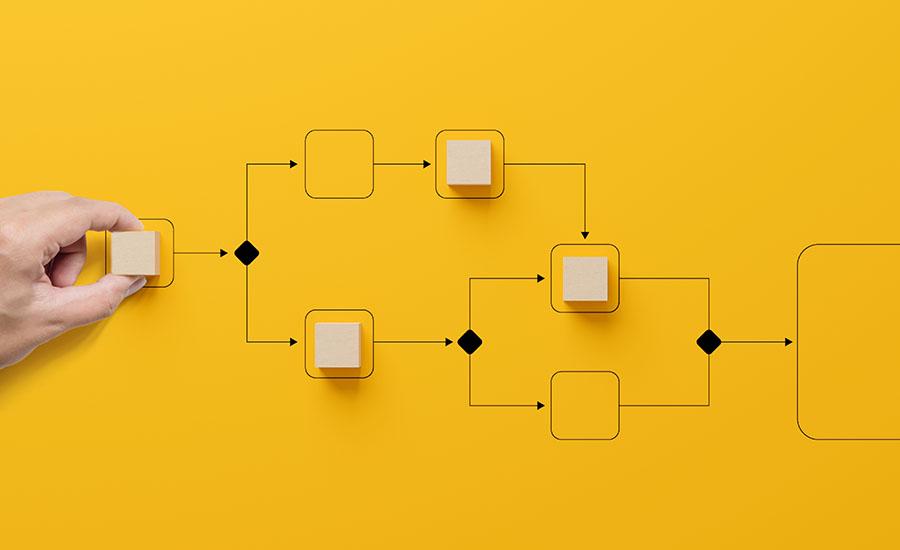Grades:
3rd Grade, 4th Grade
This lesson is 3 of 4 of a unit about habitats and animal adaptations. In this project, students will build a model of a habitat and an animal they created in lesson 2. The animal will need to have
Grades:
2nd Grade
It's time to lay down roots in this hands-on lesson! Students will construct a model of plant roots using Play-Doh. They will explain the different parts of a plant and the different roles the parts
Grades:
3rd Grade, 4th Grade, 5th Grade, 6th Grade
Students discover kite-making in this hands-on lesson! They create a kite with a variety of materials and test out the final product. This lesson can be adapted to fit different grade levels.
Grades:
5th Grade
In this engaging lesson, students work together to design a water filtration system to separate pollutants from water. This lesson takes about 120 minutes to complete. Various resources are included!
Grades:
6th Grade
To demonstrate their understanding of how energy is passed throughout an ecosystem and the symbiotic relationships of organisms within an ecosystem, students construct a food web marble run. This
Grades:
2nd Grade
In this food-related lesson, students use the engineering design process to create solar ovens and cook s'mores. They engage in critical thinking as they construct their design and test out the oven
Grades:
6th Grade, 7th Grade, 8th Grade, 9th Grade
This lesson is part of a school-wide project to renovate a greenhouse and create a native seed library. This lesson is intended to create intrinsic motivation to engage in the project. This lesson
Grades:
5th Grade, 6th Grade, 7th Grade, 8th Grade
Students learn how to identify the 3 axes an aircraft uses while in flight in this lesson. They learn key vocabulary and construct a model airplane to develop further understanding of flight!
Grades:
6th Grade
In this 1st lesson in a series of 3, students learn about the Great Pacific Garbage Patch. They create a model and write and defend a claim about humanity's ability to mitigate the problem. This
Grades:
9th Grade, 10th Grade, 11th Grade, 12th Grade
Using the Introduction to Hydroponics lab, introduce students to the features of the Hydroponic Systems. Students will explore the different types of grow mediums and grow lights used in the systems
Grades:
5th Grade, 6th Grade, 7th Grade, 8th Grade
In this creative lesson, students explore states of matter as they fuse glass. During this process, students are actively engaged as they design an art piece, work on measurements, and collaborate
Grades:
7th Grade
In this lesson students will discuss how contact forces cause energy to be transferred and objects to move. They will learn that sound waves involve contact forces. Students will consider how contact
Grades:
5th Grade
After watching a video of the space station, students will design and build a model space station containing certain requirements. Students will use scale in order to create a blue print and then
Grades:
8th Grade
This lesson plan is about the making and testing a solar car. This will take a minimum of two weeks. Solar panels and a motor will be provided. Students can use any safe material of their choice to
Grades:
6th Grade, 7th Grade, 8th Grade
In this lesson, students will show how heat transfers into an egg during the hard-boiling process, and additionally, different methods of how heat can transfer out of an egg during the cooling process
Grades:
6th Grade
Students will be working cooperatively to explore wind energy and electricity by engineering wind turbine blades.
Grades:
6th Grade
Students will explore energy, electricity, and engineering in this hands-on lesson using the Kidwind kit to create a wind turbine.
Grades:
Kindergarten, 1st Grade
In this fun lesson, students will develop a simple sketch and a physical model of a float to illustrate how the shape of an object helps it function as needed to solve a given problem. They will then
Grades:
6th Grade
In this 1-day lesson, students are challenged to collaborate with their teams to create a plan and use PVC halves to transport 1 golf ball 75 feet without touching the ball or allowing the ball to
Grades:
4th Grade
The students will work in groups to create a model of a roof that is able to survive a hurricane-like wind. Students learn about disaster preparedness, use the engineering design process to guide the
Grades:
6th Grade, 7th Grade, 8th Grade
This middle school lesson covers the concept of air resistance. Students work in teams of 3 with a list of materials to design, build, and test 3 parachutes that will maximize the air resistance of a
Grades:
5th Grade
Students will use multiple modes of learning to learn about how force is affected by mass changes. The book Newton and Me will be read aloud and used for a discussion. Finally students will construct
Grades:
6th Grade, 7th Grade, 8th Grade
In this lesson, students will investigate the properties of a mixture, as if it were a contaminated soil sample near a stream. This activity will show students that heterogeneous mixtures can be
Grades:
5th Grade
Can a water fountain be solar powered? YES! In this engaging lesson, students will engineer a solar powered water fountain to show how energy transformed and transferred throughout their system. Each
Featured Lesson Plans
Check out these notable lesson plans.

Featured
Math Magic through Coding!
Grades:
2nd Grade
In this 2nd grade STEM lesson, students will learn how symbols (directional arrows) can be used to program an object's movements. They will develop an algorithm using a sequential graphic organizer to

Featured
Space Case Chapters 1-7
Grades:
3rd Grade, 4th Grade, 5th Grade
This is the 2nd set of 4 lesson plans that correlate with the novel "Space Case" by Stuart Gibbs. This is a literature-inspired project base learning opportunity. The lessons include straw rockets

Grades:
5th Grade
In this four-day lesson, students will be assigned a specific pollinator. They will research the pollinator and the plants which it pollinates. Then, they will create a puppet and props to model the
